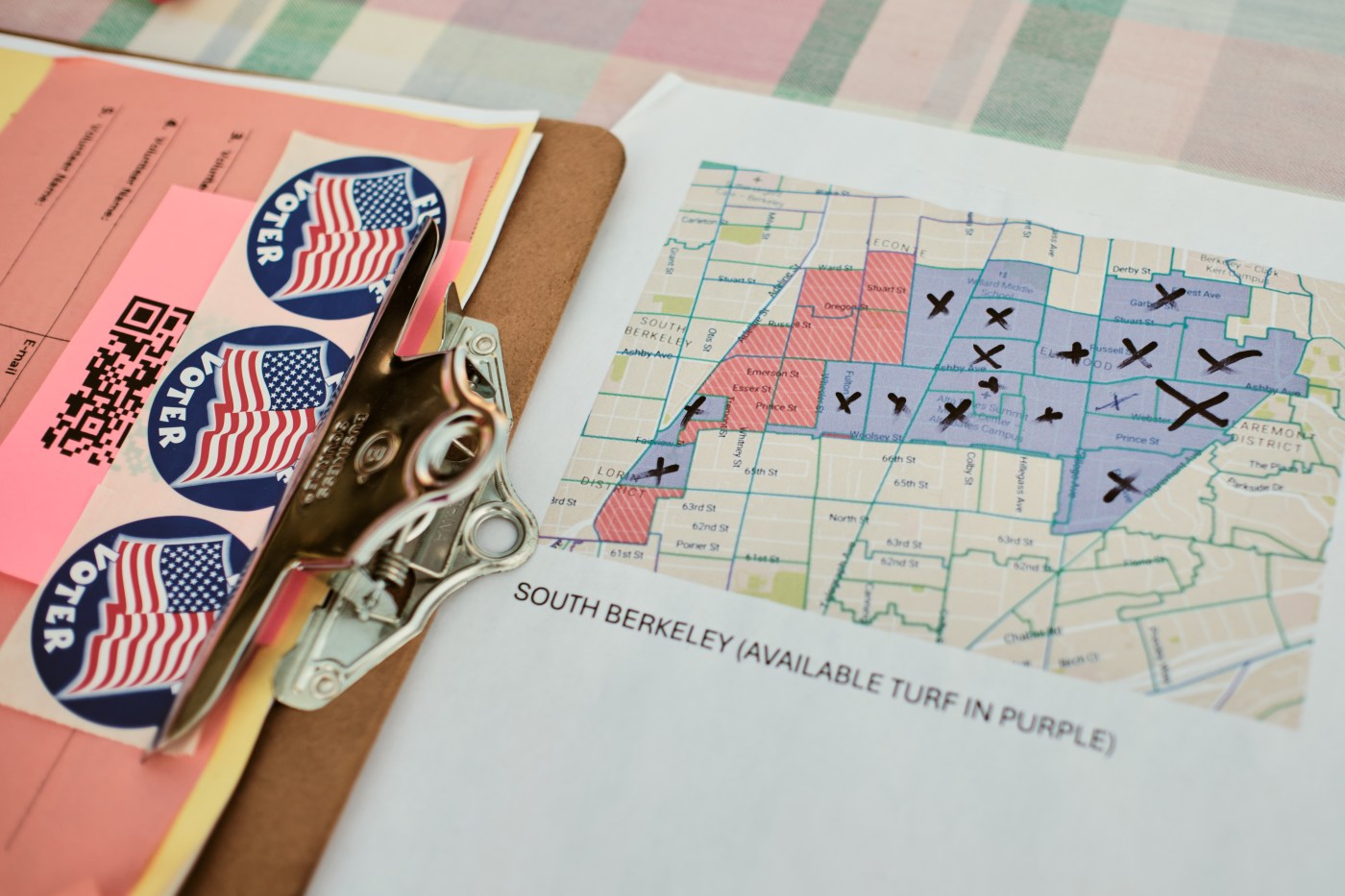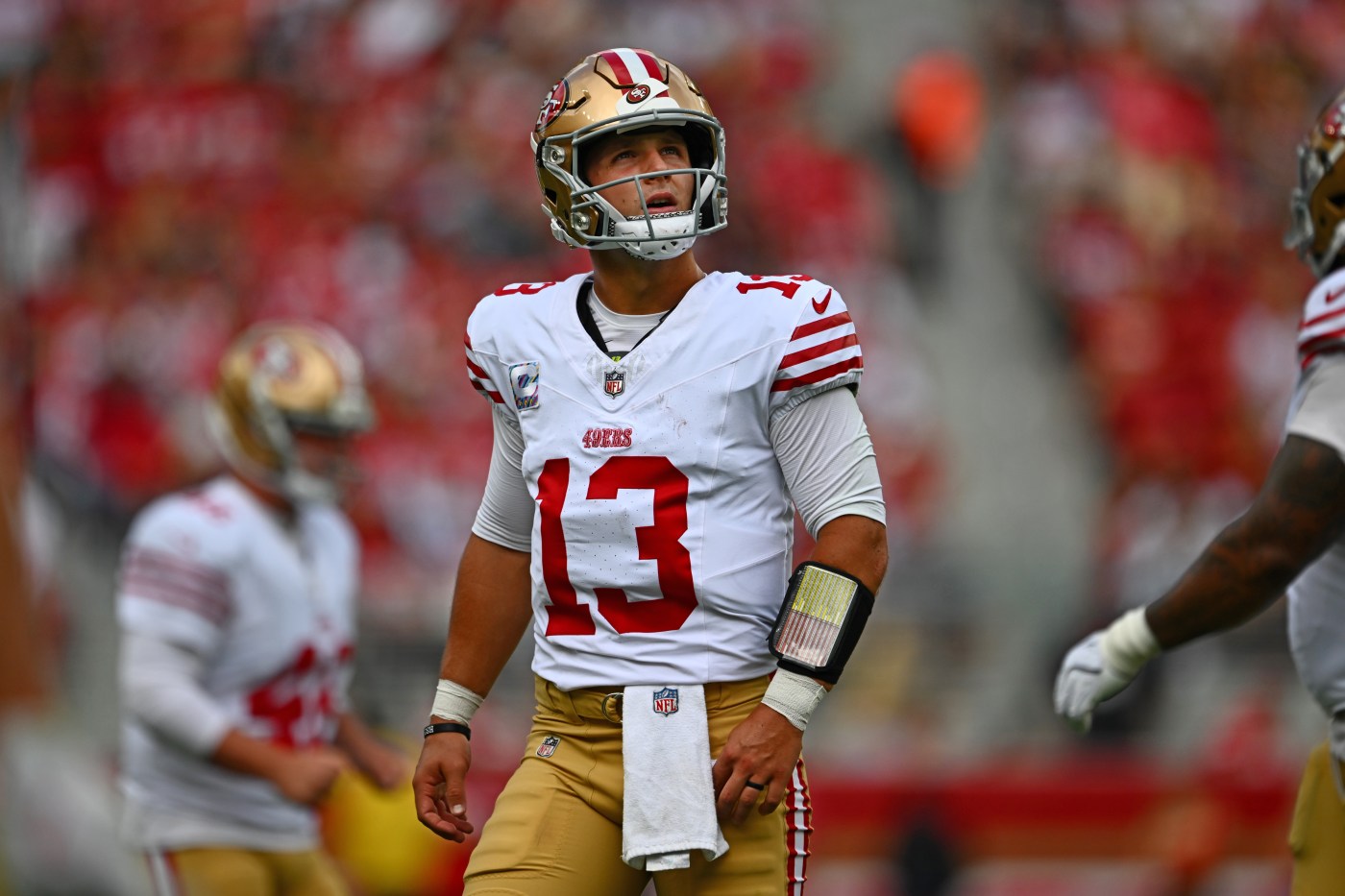With a national fundraising blitz in full swing and Election Day just around the corner, Democrats stumping for Proposition 50 have far out-raised and out-spent their opponents — even though a California megadonor with Republican ties single-handedly spent $30 million to defeat it.
The serious spending imbalance is one reason why analysts expect Prop. 50 to cruise to victory on Nov. 4. Democrats from Gov. Gavin Newsom to former President Barack Obama and New York Rep. Alexandria Ocasio-Cortez are imploring voters to sign off on the plan, which would temporarily toss the state’s independently-drawn congressional districts.
Replacing them would be new maps drawn by Democrats designed to send more members of their party to Congress and perhaps give themselves a better shot at winning the U.S. House of Representatives in the November 2026 midterms, which would be a blow to President Donald Trump’s agenda.
Related Articles
Letters: Vote yes on Prop. 50 to foil Donald Trump’s policies
Borenstein: Proposition 50 provides California’s only hope to rein in Trump
Proposition 50 and more: Our endorsements for California’s Nov. 4 special election
This California city banned the Pride flag. Newsom’s maps would give them a progressive, gay congressman
A California voter registration deadline is fast approaching
According to new campaign finance disclosures, the main “Yes on 50” committee hauled in nearly $37 million between Sept. 21 and Oct.19 from throughout the U.S. — more than four times the combined haul of the two central committees on the “No” side. In that period, as the campaigns entered crunch time in the fast-paced election, proponents also spent nearly four times as much to persuade voters.
And over the course of the entire campaign, the “Yes” side collected $114 million in donations, more than three times the $44 million haul of opponents.
The upshot? The national Republican Party, led by Trump, is not tapping its massive cache of election funds to defeat Prop. 50, said Matt Rexroad, a longtime state GOP political strategist who is not involved with the measure. Rexroad said the lopsided funding suggests that the measure will pass.
“If it was close, the ‘No on 50’ side would have more resources,” he said. “Because this is really important.”
David McCuan, a Sonoma State University political scientist who studies ballot initiatives, also expects Prop. 50 to pass, based on private polling and voter data he’s seen.
“If the election were held today or this week? This thing passes,” McCuan said in a text. “Right now, it passes by around 15 (percentage) points,” he said.
A new poll by CBS News this week found 62% of likely voters surveyed planned to vote for Prop. 50, with 38% against it. Another by Emerson College found 57% of likely voters support Proposition 50, while 37% oppose it.
Hannah Milgrom, a spokesperson for “Yes on 50,” said more than one million donors have chipped in to help pass Prop. 50. On the other hand, Charles Munger Jr. spent more than $32 million to defeat it. Munger is the son of a Berkshire Hathaway executive and a physicist who spent heavily to establish independent redistricting in California more than a decade ago.
Milgrom said “Yes on 50” strategists aren’t taking any vote for granted in the home stretch of the campaign and are continuing to stump “pedal to the metal.”
Those in opposition are holding out hope. Amy Thoma Tan, a spokesperson for Munger’s opposition committee, said “anything can happen” between now and Election Day.
“We’re still campaigning, we’re still out here, we’re still in the fight,” she said.
Ellie Hockenbury, spokesperson for the California Republican Party and the other main opposition committee, said their “data driven campaign” is “focused on raising every dollar needed to stop Gavin Newsom’ partisan gerrymander.”
To turn out voters and unleash donations, the “Yes” side has tapped the nation’s most prominent Democrats. If Ocasio-Cortez, Newsom and Nancy Pelosi weren’t enough to push Proposition 50 across the finish line, Democrats unveiled their secret weapon this week: Obama, who is appearing in TV ads and on Zooms with supporters of the gerrymandering plan.
“California, the whole nation is counting on you,” the ex-President says in one ad, as images of President Donald Trump flash onscreen. “Democracy is on the ballot November 4. Republicans want to steal enough seats in Congress to rig the next election and wield unchecked power for two more years.”
That’s the “Yes on 50” campaign’s final message to voters as California barrels toward Election Day.
Opponents are imploring voters that the measure is bad for democracy. California Republicans are painting Prop. 50 as a “power grab” by Democrats and Newsom, who has all but said that he will run for president in 2028 while he raises his national profile. Their latest medium of choice? Mailers, which papered Bay Area homes this week.
“Prop. 50 is Gavin Newsom’s scheme to rig elections, impeach Trump and launch his presidential campaign,” reads one recent mailer paid for by the California Republican Party. “Prop 50 puts Gavin Newsom first and Californians last,” reads another.
And separately, Munger Jr. tapped a Southern California mayor to deliver his message that Prop. 50 takes California backward.
If passed, Prop. 50 would expand Democrats’ grip over California politics and could influence the national balance of power during the 2026 midterm elections. A Republican victory would maintain President Donald Trump’s ability to carry out his sweeping agenda, and a defeat would give Democrats newfound power to thwart parts of it.
The stakes are high. Nationally, Democrats and Republicans are jockeying to not only win over voters and horde cash, but also give themselves an edge by “gerrymandering” congressional districts.
The measure would replace five GOP-held districts in California with new boundaries drawn intentionally to favor Democratic candidates. The famously liberal Bay Area would not see major changes. If approved, the new district lines would inject Democratic voters into California’s few political battlegrounds, located in the San Joaquin Valley and southern California. The new districts would also protect some competitive seats currently held by Democrats, including Rep. Adam Gray in the Central Valley.
Currently, Republicans hold nine of California’s 52 seats in the U.S. House of Representatives. If Prop. 50 passes, and Democrats’ vision is realized, the GOP could control as few as four seats.





